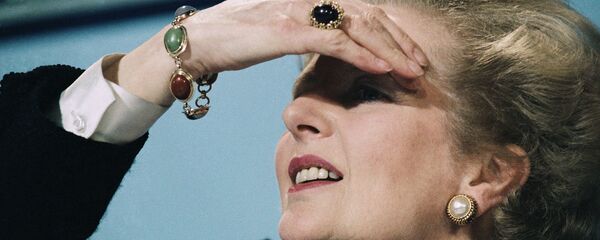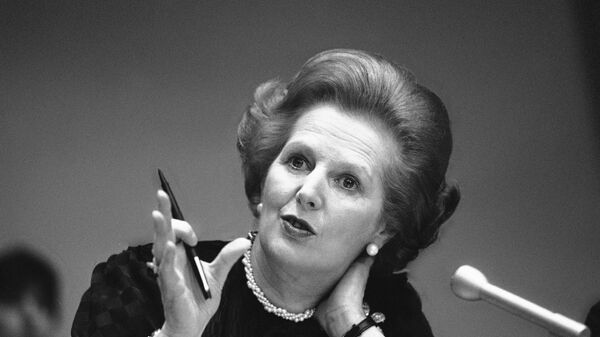These issues demand coverage and the incompetence of government and incapacity of the NHS to cope on the back of a decade of cuts requires daily and hard-hitting exposure. However today, March 31st, is of such historical and personal significance that I am compelled to temporarily sideline coronavirus in favour of a reflection on the mighty battle against Margaret Thatcher’s self-declared ‘flagship policy’, the poll tax.
It was exactly thirty years ago today that political history in the UK was made and my personal life was changed forever. Some context to this historic day is necessary.
Emboldened by her record third election victory in a row in 1987 Prime Minister Margaret Thatcher decided to mark her third term in power with a radical and fundamental change to local taxation with the introduction of a new flat rate tax system with no progressive content to replace the existing property based rates system that was levied on domestic properties and taxed larger dwellings more than smaller ones. It was relatively progressive. Domestic rates taxed people in big houses more than those in smaller flats and high-rise tenements. It was relatively fair.
Thatcher Didn’t Like Progressive Taxation
Progressive taxes which taxed those on larger incomes more than those on smaller incomes was part of the post Second World War UK political consensus which chimed with the universally accepted principles of fairness and decency. Thatcher was a particularly right-wing Tory, however. She didn’t agree with that consensus.
Her first two terms in office brought mass unemployment, wholesale destruction of traditional industries and communities and a massive growth in inequalities. The research shows that there was a massive increase in income inequality under Thatcher - the richest 0.01 per cent of society had 28 times the mean national average income in 1978 but 70 times the average in 1990, and UK poverty rates went up from 6.7 per cent in 1975 to 12 per cent in 1985 Thatcher wanted her third term to continue that trend. She believed inequality was not only good for society but should be encouraged and glorified. She famously stated that warped opinion at a swanky dinner hosted by the Royal Geographical society in 1991: "our job is to glory in inequality".
Community Charge Became Known as Unfair, Unjust, Immoral Poll Tax
No surprise then that her Community Charge proposal to replace the domestic rates system was a deeply regressive tax that took no account of relative incomes but would apply as a flat rate tax to everyone. It would treat rich and poor alike. The proverbial Duke in his large castle would be compelled to pay the same as the low paid dustman in his small council flat for the provision of essential local services like street lighting, refuse collection, education and social care. It quickly became know as the poll tax and Thatcher decided to try it out in Scotland first. She hated Scotland. We canny Scots rejected her in 1979, 1983 and 1987 but sadly England elected her. Her revenge was to use Scotland as the human guinea pig for her ‘flagship policy’, the poll tax.
On 1st April 1989 the poll tax was introduced to Scotland with the roll out in England and Wales delayed until 1st April 1990. Northern Ireland was spared the dubious pleasure completely.
After years of devastation and destruction of Scottish mining, steel and ship-building communities the population was angry but weak. Thatcher had defeated the proud National Union of Mineworkers during a brutal and bloody year long strike in 1984/85 and appeared invincible. She was widely referred to as ‘The Iron Lady’, a tag she positively revelled in. Now she sought to impose her unfair, unjust and immoral poll tax upon us, and she expected little resistance. She was wrong.
Anti-Poll Tax Army – From Small Acorns Grow Great Oak Trees
From the grassroots up hundreds of anti-poll tax protesters organized local meetings of education and resistance. From those meetings emerged bodies called anti-poll tax unions and the common declaration was a commitment to mass non-payment of Thatcher’s tax. The feeling of indignation was deep in Scotland. We had democratically rejected her three times at the ballot box in Scotland, yet we were saddled with her rule regardless. We had no choice. The normal political process had failed us. All we had left was civil disobedience on a mass and organised scale. Sure, it was against the law not to pay the poll tax but when laws are fundamentally unjust then disobedience is our duty.
In preparation for the poll tax introduction in England and Wales I was dispatched to every town and city we could reach to communicate the message of mass civil disobedience. The message was a difficult one but on the back of the million non-payers in Scotland many became convinced it was right and just to ‘join the Jocks’ and refuse to pay Thatcher’s poll tax.
I was a member of the Militant Tendency within the Labour Party in those days and their political contacts and structures were invaluable in spreading the cause. An All-Britain Anti-Poll Tax Federation was formed, and I was elected to be its chairman. From small acorns, great oaks grow and the local anti-poll tax union I had helped form in my Pollok housing scheme in Glasgow had certainly grown into a giant structure covering most of Scotland, England and Wales.
From Scotland Wide Protest to All-Britain Federation
From late 1989 the newly formed Federation of anti-poll tax unions planned a massive demo to mark the 1st April introduction of the tax in England and Wales. Saturday, March 31st, in London was selected as the date we would display our strength and mobilise tens of thousands in opposition to the increasingly despised poll tax. As the date approached it was clear the response would be huge. The Trafalgar Square end destination was going to be too small. A request to change the route to end up in Hyde Park instead was rejected by the city of London council. What a stupid decision that was.

After addressing the rally in Glasgow, I was whisked off to Glasgow airport where I was booked on the 1.15pm British Airways flight to London. We were late and nearly missed the flight. Unbeknown to me at the time an old school friend was operating that flight as an air stewardess. She persuaded the Captain to give me some more time before closing the boarding gate. I couldn’t believe it. I was already on a high from the adrenalin of success in relation to the Glasgow march and rally and now I was being led onto the plane by a woman I had fancied throughout my school years but had never had the courage to admit my feelings to. She was as beautiful as ever. So smart, pristine and classy in her British Airways uniform. I had been smitten for years and now here was my chance to confess my admiration and at last ask Gail Healy out. I grabbed it with both hands buoyed by the success of the day so far and to my joy, and surprise, she agreed to meet me later when I returned from London. What a day. I virtually floated off the plane in London to make my way to Trafalgar Square.
Big John Ellen from the All Britain Federation was assigned to pick me up at the airport and get me to the centre of London. He was a bag of nerves with the excitement of the turnout at the march. It was huge. In excess of 200,000 had assembled and the mood was ecstatic. By the time we reached Trafalgar Square it was a veritable sea of human beings. Old and young. Male and female. Colourful and loud. It was a lovely day and the banners and placards that declared opposition to the poll tax were everywhere. Held up with pride and determination by ordinary people who were there in extraordinary numbers to declare their commitment to mass civil disobedience.
Police Provoke a Riot
We eventually reached the plinth in the middle of the Square and Tony Benn MP was speaking. I stood with George Galloway MP from Scotland and told him about the massive Glasgow event. He was pleased. He introduced his young daughter to me. I was told to get ready to speak. I was next up after Tony. He spoke with great passion and clarity. He congratulated everyone for attending and assured us we could win. The cheers that followed his concluding remarks had hardly ended when all hell broke loose. Unforgivably and no doubt deliberately police riot vans drove into the Trafalgar Square crowds and protesters were thrown into the air. Riot police on foot and horseback charged the crowd and bones were broken and heads split open. In angry response, the poll tax protesters retaliated, and a full-scale riot ensued. It became known as the Battle of Trafalgar Square and resulted in over 300 arrests and 113 injured.
My great day was somewhat soured as it was very scary for a while up there on the plinth. However, it didn’t take long for the political reality and repercussions of the day to settle into my mind. Here was London, the capital of the Iron Lady’s Britain, up in smoke and embroiled in a riot over her ‘flagship policy’. It was clear to see on the back of the biggest demonstration in London’s recent history that neither the poll tax nor Mrs Thatcher could survive such pressure. Neither did. Within the year it was declared that upwards of 18 million across the UK were in poll tax arrears and the anti-poll tax army had made the tax unworkable. Thatcher was forced to resign and her replacement John Major declared the poll tax: …as unfair, uncollectable and indefensible.
We all knew it was ‘unfair’ and ‘indefensible’ but it was the anti-poll tax campaign of civil disobedience that made it ‘uncollectable’.
Thirty Years Ago Today – All Is Well That Ends Well
Thirty years ago, this very day (March 31st) people power broke the hated poll tax and sent the so-called ‘Iron Lady’ to the political scrap yard to be melted down. It is a joyous and historical day indeed.
On the personal front, I couldn’t get that return flight to Glasgow as I had to stay in London and deal with media interviews and arrange representation for the hundreds arrested. I missed a big opportunity with the gorgeous Gail. However, two years later while in prison for helping prevent a poll tax warrant sale I stood for election to Glasgow City Council and won. It was the first time anyone had ever been elected from a prison cell in Scotland. Gail sent me a card to congratulate me. I wrote back and after my four months in jail, we met up and began a romance that led to our marriage in 2000. We now live happily together with a beautiful fourteen-year-old daughter. All is well that ends well.



